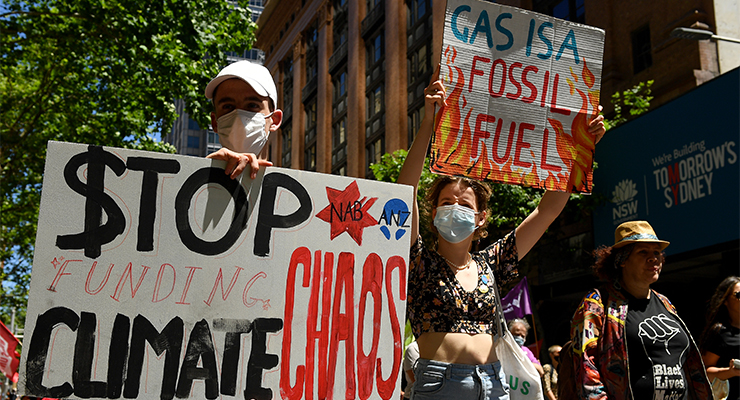
“An atlas of human suffering” could really have been the title track for any number of events in the past weeks, months or years. But these words were used by United Nations secretary-general António Guterres on Monday when he declared the latest Intergovernmental Panel on Climate Change (IPCC) report “a damning indictment of failed climate leadership”.
The 2022 IPCC report details how climate change will split the world in half, between those who have the resources to survive the impact and those who do not; how every additional tenth degree of warming means many more people will die from health problems relating to heat, air pollution, infectious disease and starvation; and how, even if we limit warming to 1.5 degrees, children of age 12 will still live through four times the amount of floods, bushfires and other natural disasters.
Perhaps the most urgent message is just how narrow the window is for change, and just how much we stand to lose. As climate activist Greta Thunberg says on Twitter, “Literally everything is at stake.”
However, just as the existential threat of climate change was pushed off the front pages by the pressing problem of a global pandemic, scientists are worried the report’s warning is also at risk of being overshadowed by the looming threat of, at worst, nuclear war, and at “best”, a war that threatens world peace and is sure to be followed by a humanitarian crisis. Indeed the Ukrainian delegation “expressed how upset they are that this [the Russian invasion of Ukraine] will distract from the importance of our report”.
It’s a strangely sad indictment of the global news model that a duality of catastrophe isn’t able to exist on the front pages and screens of the world, but as IPCC report co-chair Debra Roberts told Reuters, “We live in a world where there’s constant competition for headlines.”
But forget the headlines, an environment and globalisation reporter says, it’s the final line of the report that sends a pretty clear message that deserves to cut through war, pandemic and a nuclear threat: the time to act is now.








How mind bogglingly shortsighted can they be? Even if the silliest of their fantasies about nuclear war were true, those brief disasters would rank as trivial compared to the climate Holocaust, which is already underway and will continue long after our fossil-burning civilisation has vanished from the face of the earth.
The fact that I’m only the second person to comment feels like a microcosm of the whole catastrophe described in this article.
We’re in the last chance saloon to save human civilisation but no-one’s interested except Roger and I.